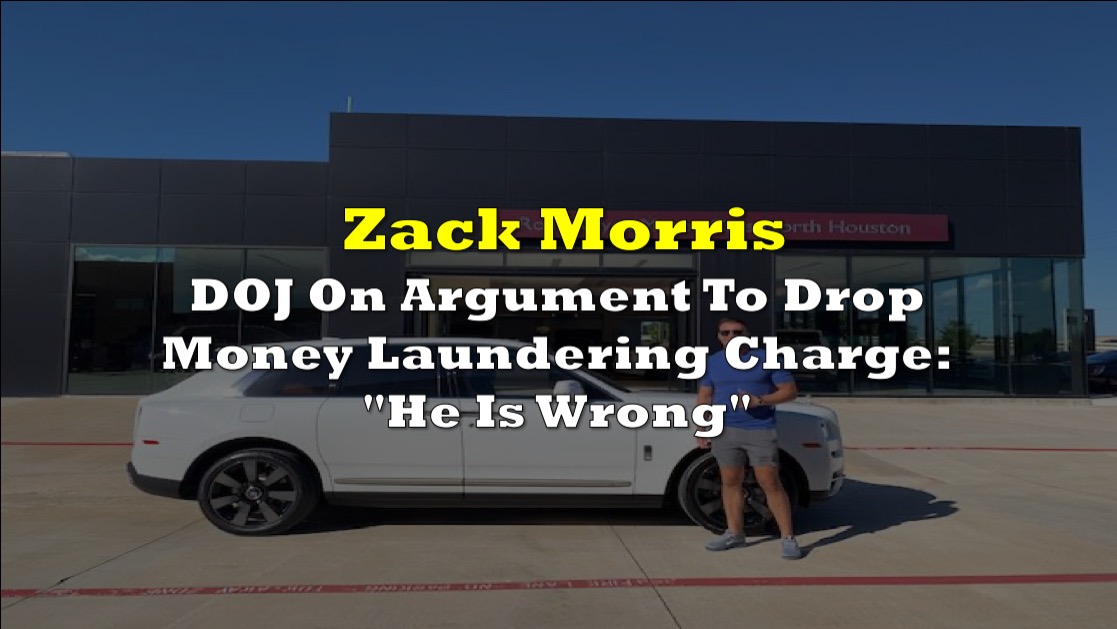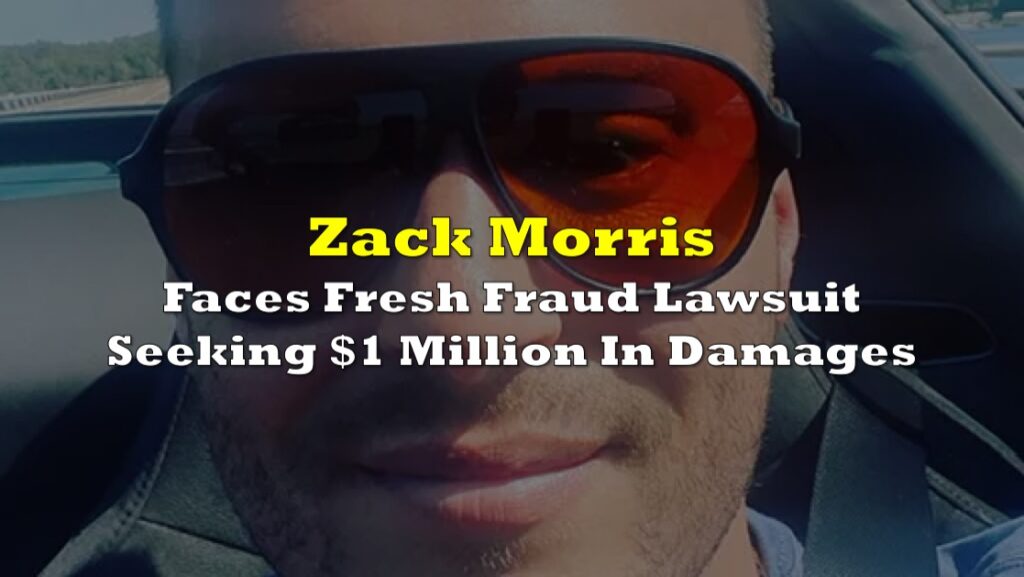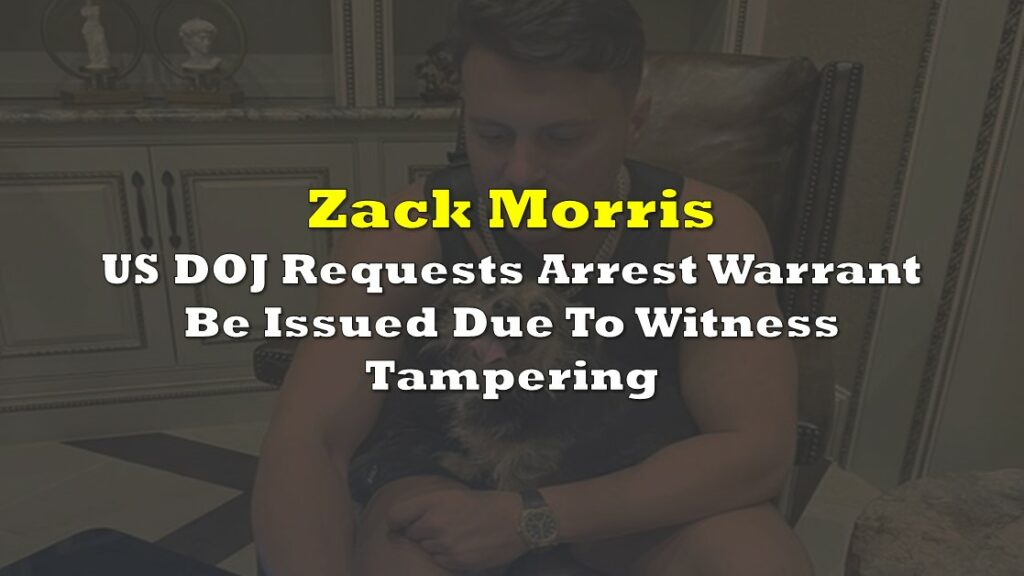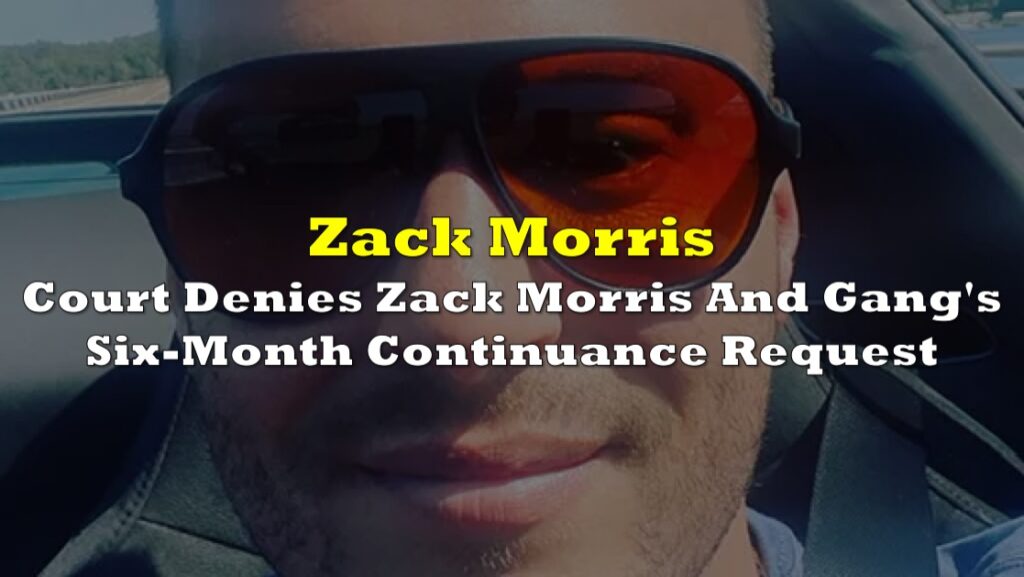In a court filing on Thursday, the Department of Justice opposed Zack Morris’ legal argument that his money laundering charge should be dropped based on technicality. The government agency, who’s in the middle of suing the controversial online influencer and his so-called Goblin Gang on numerous counts of classic pump-and-dump schemes, said plainly that Morris is wrong in interpreting the law.
DOJ Opposes Edward Constantinescu aka StockPumper @MrZackMorris Motion to Dismiss Count 21 (Money Laundering) of the Indictment
— GuruLeaks (@Guruleaks1) March 3, 2023
Link to document: https://t.co/WqeP3VWIbz#AtlasTrading @PJ_Matlock @Hugh_Henne @DipDeity @Ohheytommy @NotoriousAlerts @Ladebackk @Ultra_Calls pic.twitter.com/FbR9yxy3R8
Morris’ (legally Edward Constantinescu) contention relates to count 21 of the case, which charges him solely for violating US Code section 1957, which criminalizes “engaging in monetary transactions in property derived from specified unlawful activity,” commonly called money laundering.
Section 1957 states “whoever, in any of the circumstances set forth in subsection (d), knowingly engages or attempts to engage in a monetary transaction in criminally derived property of a value greater than $10,000 and is derived from specified unlawful activity, shall be punished as provided in subsection (b).”
Morris’ legal team argues that the section criminalizes racketeering based “money laundering,” citing a previous section that defines “specified unlawful activity,” but notably excludes “securities and commodities fraud” and “defining attempt and conspiracy to commit mail fraud and other fraud offenses.”
Thus, to establish a money laundering offense under section 1957, “the government must allege and prove that [Constantinescu] engaged in a monetary transaction in property ‘derived from specified unlawful activity’,” the filing said.
Morris’ counsel argued that the charge doesn’t constitute ‘specified unlawful activity’ which may form the “predicate for a money laundering charge under section 1957.”
The DOJ, however, disagrees, noting that the defendant’s “alleged securities fraud falls squarely under the plain meaning of this unambiguous text.”
“In the Motion, Defendant Constantinescu seeks to dismiss that Count, arguing that the text of the statutes do not cover securities fraud. The Defendant is wrong,” the DOJ said in its filing. “The statutes’ text, structure, history, and treatment by courts compel the conclusion that the statutes apply to the Defendant’s charged conduct.”
The agency argued that the law should be interpreted in its plain terms. In Section 1961(1), which contains a list of “specified unlawful activity,” DOJ noted that it includes “any offense involving… fraud in the sale of securities… punishable under any law of the United States…”
“Thus, by the statute’s plain terms, any offense involving fraud in the sale of securities punishable under any law of the United States is specified unlawful activity under Section 1957,” the DOJ added. “That plain language necessarily includes securities fraud…because they are offenses that involve ‘fraud in the sale of securities’.”
Further, while Morris argued that there was no act of fraud in the sale of securities because he didn’t sell fraudulent securities to investors himself, the DOJ sees it that “sale” should be understood in its ordinary meaning, encompassing “the Defendant’s conduct of selling his [own] securities on public exchanges.”
“Fraud in the sale of securities is inherent in a pump and dump scheme’s very nature. The Defendant and his coconspirators are not charged only with ‘pumping,’ but also ‘dumping,’ or selling securities,” explained the DOJ. “The ‘dump’ is the ‘sale’ of their shares, which they hoped would be at inflated prices created by the pump. Thus, their pump and dump scheme necessarily constituted fraud in the sale of securities.”
In December, the Securities and Exchange Commission filed the charges of fraud against Morris, together with Perry Matlock (aka PJ Matlock), Thomas Cooperman (aka Tommy Coops), Gary Deel (aka Mystic Mac), Mitchell Hennessey (aka Huge Henne), Stefan Hrvatin (aka LadeBackk), and John Rybarcyzk (aka Ultra Calls). Daniel Knight (aka Deity of Dips) is also named a co-defendant as he “aided and abetted” the scheme through his podcast with Hennessey. Collectively the group is referred to as Atlas Trading.
According to the agency, the gang (as they would refer to themselves) “earned approximately $100 million from this stock-manipulation scheme.”
Soon after, a federal grand jury delivered an indictment on the eight people–known in the space as the “Goblin Gang”–and conviction of the charges could carry up to 25 years in jail on top of penalties.
Many of the defendants, including Morris, are currently out on bail. But in the most recent update on the defendants, Hrvatin was arrested in Miami on misdemeanor battery charges.
8 Days After Judge Granted His Motion to Leave Home with GPS Monitor, Indicted StockPumper Stefan Hrvatin aka @Ladebackk Arrested in Miami on 2/24/2023 on Misdemeanor Battery Charges
— GuruLeaks (@Guruleaks1) March 3, 2023
Released on $1500 Bond
h/t @thetraderbabe $CEI pic.twitter.com/VvNCFNvBx8
Essentially, the DOJ argues to deny Morris’ motion to dismiss count 21, as “the text, structure, history, and interpretation of the relevant statutes lead to the inescapable conclusion that… the Defendant’s charged conduct unmistakably falls under this plain language: ‘any offense involving… fraud in the sale of securities… punishable under any law of the United States…’.”
Information for this briefing was found via the sources mentioned. The author has no securities or affiliations related to this organization. Not a recommendation to buy or sell. Always do additional research and consult a professional before purchasing a security. The author holds no licenses.









